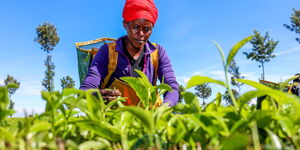The price of beef in Nairobi is set to rise further due to the unlikely good rains from January that have made fodder more available, with farmers now reluctant to offload their cattle in the market, creating a supply shortage.
As a result, most butcheries in Nairobi have increased the price of beef by at least Ksh 60 a kilogram. This has led to the price in some outlets going beyond Ksh 500 a kilo.
When there is good pasture, a lot of farmers would not sell their animals as they want to fatten them and sell at a higher price on a later date,” explained Livestock Principal Secretary Harry Kimtai.
The National Drought Management Authority (NDMA) revealed that animal shortage has led to a 53 percent increase in cattle prices in Kajiado, 46 percent in Isiolo, 45 percent in Wajir, 20 percent in Baringo and 34 percent in Tana River in the past three months.
“In about 80 percent of the arid and semi-arid lands counties, cattle prices are higher than the three-year average price of cattle for the month of January,” said NDMA.
Due to scarce pasture, these areas that produce cattle have high sales between November and February. Pasture scarcity forces farmers and herders to sell their livestock to save them from starvation and losses.
Speaking to sources, butchers pointed out that the increase in beef prices has not affected its demand.
They also remarked that had the increase in prices been applied to wholesale buyers, the retail price would have gone even higher.
“The price increase would have been higher had butchers passed on the entire increase in wholesale prices,” said a butcher.
In a report released by the Kenya National Bureau of Statistics(KNBS) on February 27, food inflation was attributed to an increase in the prices of some food items outweighing the decrease in others. The food inflation rate between February 2020 and February 2021 rose by 6.93 per cent.
The Index for Housing, water, electricity, gas and other fuels increased by 0.43 per cent between January 2021 and February 2021 owing to the price increase on kerosene by 6.02 per cent. A 2.8 per cent decrease in the cost of electricity was recorded over the month.
The transport index also increased by 2.33 per cent owing to the increase in prices of diesel by 5.66 per cent and petroleum by 7.57 per cent.












